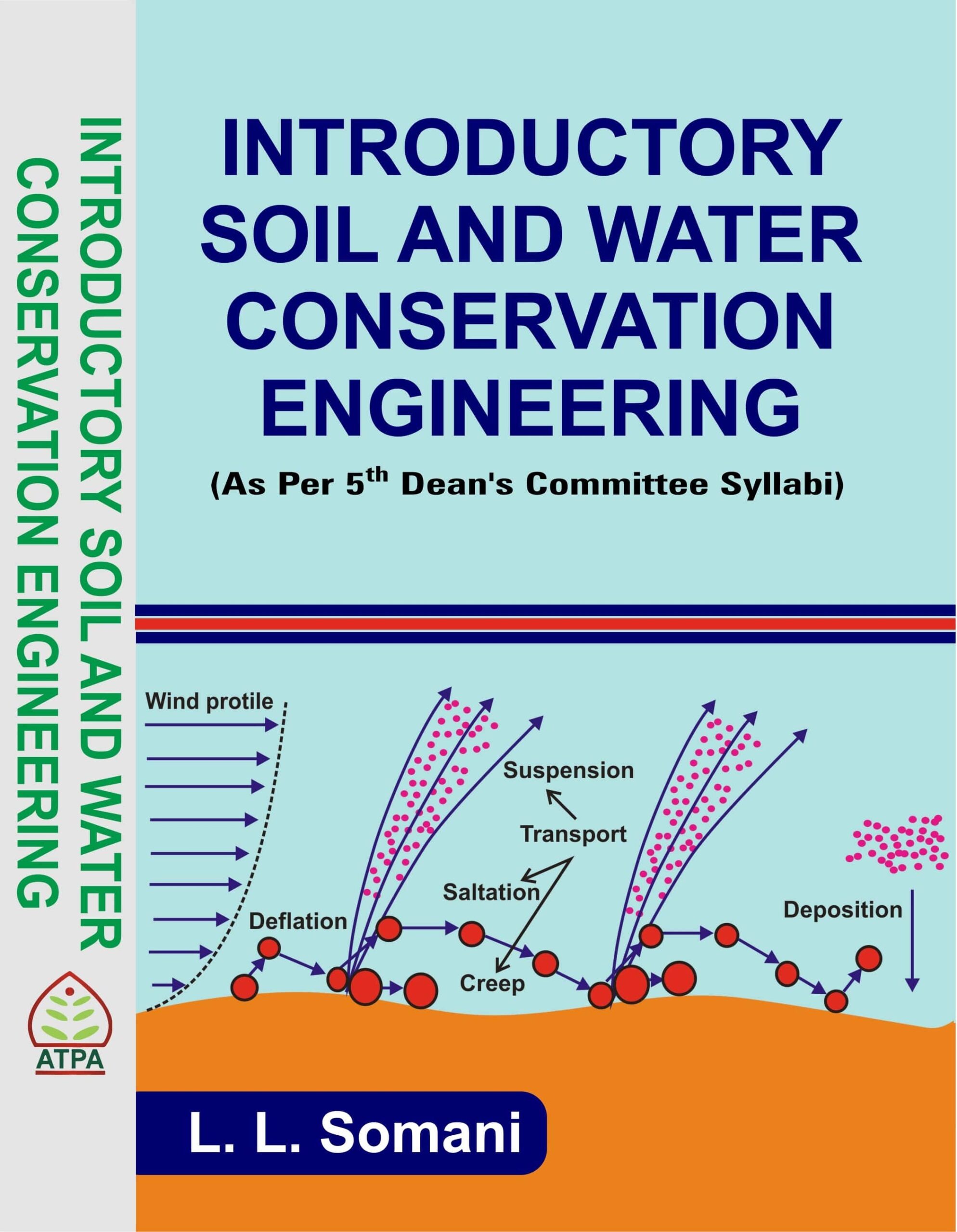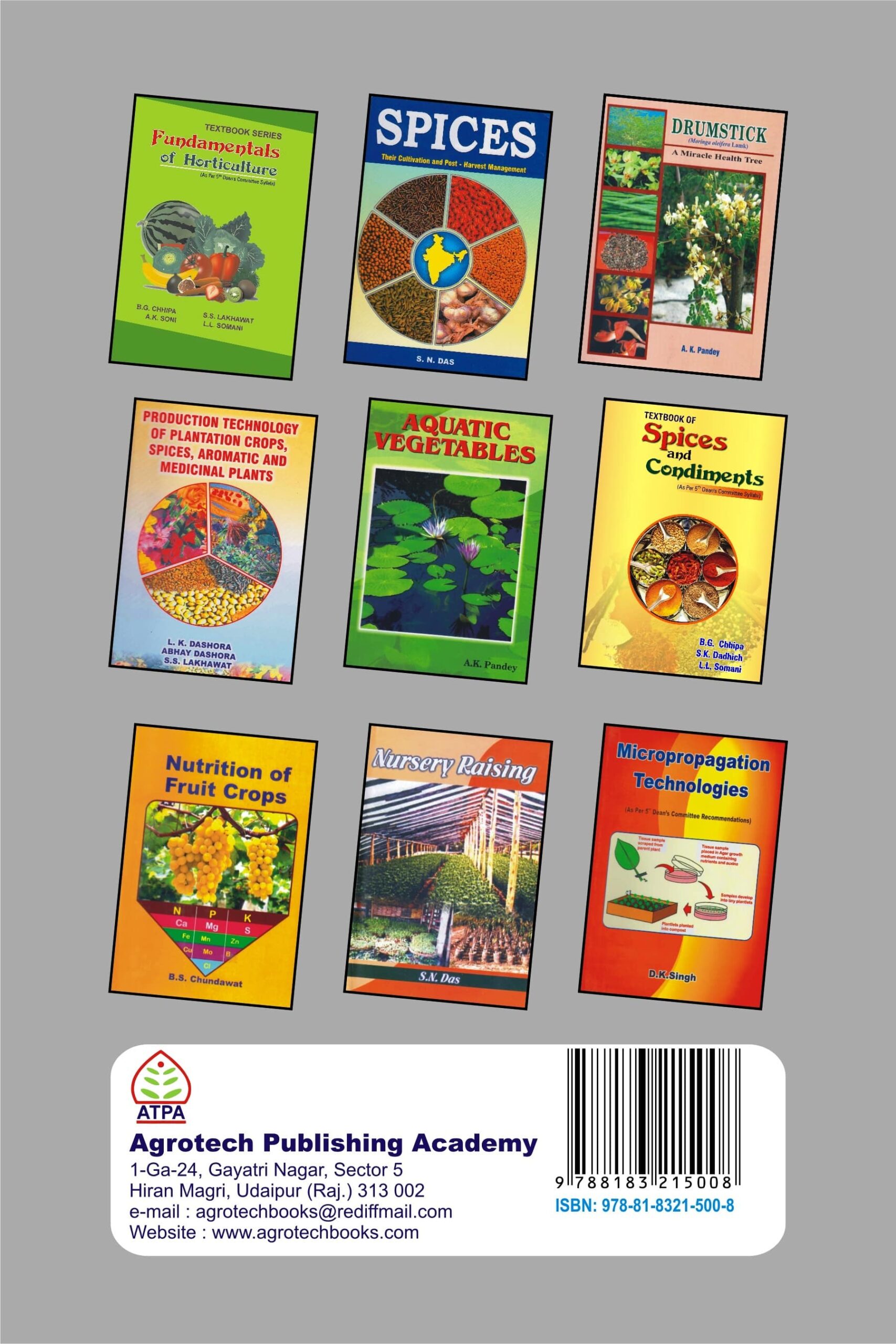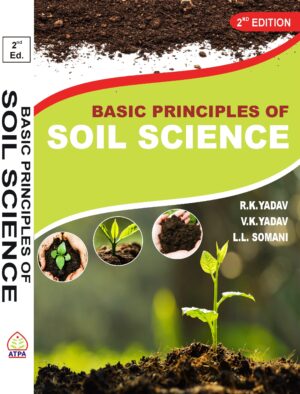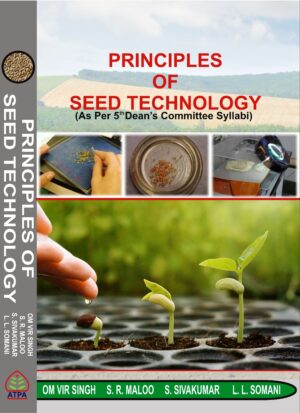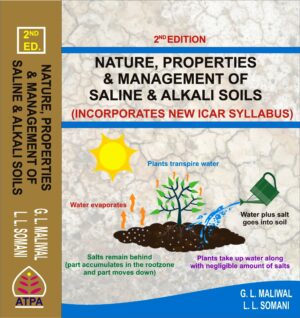INTRODUCTORY SOIL AND WATER CONSERVATION ENGINEERING
₹1,250.00
AUTHOR: L.L. SOMANI
PUBLISHING YEAR: 2020
ISBN: 9788183215008
© All Rights Reserved
Description
ABOUT THE BOOK
Of all the gifts of nature, none is more indispensable to human beings than soil. Along with sunlight, air and water, soil nourishes plant life and support human and animal life.
Soil is the upper most layer of earth’s crust lying over the rocky core of the earth at different depths. It consists of weathered and disintegrated minerals mixed with organic substances and is capable of sustaining plant life. Top soil is the most vital part of soil. The upper 15-20 cm depth of soil is the principal feeding zone of the plants, which provide food for human or livestock consumption, fibre for cloth, and timber for shelter. The wealth and the culture of a country depend upon its top soil.
The upper most 30-45 cm of surface soil in the first place is the major zone of root development, it carries much of the nutrients available to plants, and it supplies a large share of water used by crops/ plants. Second, as the layer, which is ploughed and cultivated, it is subject to manipulation and management. Thus, the very existence of humankind depends on conserving/ protecting this vital resource.
Soil erosion results in on-site loss of agricultural production through reduced infiltration and moisture holding capacity of the soil, reduced depth of top soil and loss of nutrients; and off-site in increased sedimentation through downstream siltation of irrigation canals, farmlands, water bodies, reservoirs, thus, affecting water quality and fisheries, formation of sand dunes, etc., and flooding and decrease in dry season stream flow.
Introductory soil and water conservation engineering is the application is the application soil and water management principles to the solution of problems relating to water erosion, wind erosion, measurement and estimation of erosion soil loss), erosion control measures and water harvesting as prescribed by 5th dean’s committee For UG students of SAUs and Agriculture colleges throughout the country.
CONTENT
| S. No. | Title | Page |
| Preface | 3-4 | |
| Syllabus | 6 | |
| About the book | 7 | |
| About the author | 8 | |
| CHAPTERS | ||
| 1 | Introduction to soil and water conservation | 9-18 |
| 2 | Causes of soil erosion: definition and agents of soil erosion | 19-43 |
| 3 | Water erosion: forms of water erosion, gully classification and control measures | 44-98 |
| 4 | Runoff computation and universal soil loss equation | 99-123 |
| 5 | Measurement of soil loss | 124-132 |
| 6 | Principles of water erosion control | 133-158 |
| 7 | Grassed waterways and their design | 159-183 |
| 8 | Water harvesting and its techniques | 184-272 |
| 9 | Wind erosion: mechanics of wind erosion, types of soil movement | 273-298 |
| 10 | Principles of wind erosion control | 299-330 |
| Literature cited | 331-333 | |
| Appendix | 334-336 | |
ABOUT THE AUTHOR
Prof. (Dr.) L.L. Somani (b.1945) Retired Director (Rl) & Dean PG Studies, MPUAT Udaipur has many papers published in National and International Journals/ Symposia, etc. and many number of books to his credit in different disciplines of Agriculture and allied field. He held different positions in MPUAT and has spreaded highly innovative ideas and programmes for development of Agriculture. Prof. Somani has been honoured with several awards
Additional information
| AUTHOR/AUTHORS | L.L. Somani |
|---|---|
| PAGES | 336 |
| BINDING | Hard Back |
| PUBLICATION YEAR | 2020 |

